Lord British returns to Ultima
| March 11th, 2013 9:02 AM by Ken Gagne | Filed under Game trail; 1 comment. |
Kickstarter has been a boon not only for indie developers, but for established game designers looking to return to the virtual worlds upon which their careers were founded. Shadowgate, Space Quest, Wasteland, and Leisure Suit Larry are just a few of the franchises that got their start on the Apple II and are now slated for a well-funded modern resurrection.
But none of these games carry the impact, the longevity, or the fame as the Ultima series. Lord British has heeded the call of the fans and is turning to Kickstarter to return to Britannia.
On Friday, March 6, at 10 AM CST, Richard Garriott joined fellow Austin gaming company Rooster Teeth to host a live announcement:
The punchline was Shroud of the Avatar: Forsaken Virtues, a new computer role-playing game that lacks the Ultima brand that Garriott can no longer claim, but which only his team owns the legacy to.
The announcement didn’t need the full hour that the above video runs, but the extra time gave Garriott and hosts Burnie Burns and Gus Sorola time to reflect on how Garriott built this empire. Working in a computer store at the age of 19, Garriott began selling Akalabeth, making twice as much money in one year as his astronaut father. Garriott brought along several artifacts from those early days, including the Apple II Plus on which he developed Akalabeth. Highlights from that interview are in this gallery of screen captures from the above video.
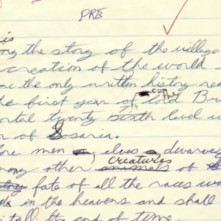

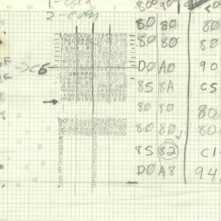
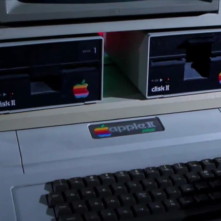
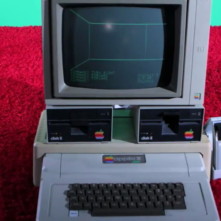
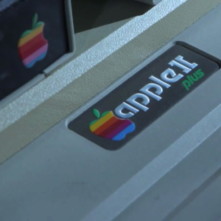
As much fun as the reminiscing was, it wasn’t hard to forget that it was a thinly veiled sales pitch. Garriott wants one million of our dollars via Kickstarter:
http://www.kickstarter.com/projects/portalarium/shroud-of-the-avatar-forsaken-virtues-0
Donation levels include the $10 “Guilt Pledge” (“If you ever pirated an Ultima game or used an exploit to grief other players in Ultima Online, here’s your chance to repent! For your $10 donation, you will receive a clear conscience and Lord British’s undying gratitude”) to the $10,000 “Lord of the Manor”, which comes with one of 12 known copies of Akalabeth. For those of us with humbler wallets, $40 gets you early access (December 2013) to the final game (October 2014), while $125 will also get you a cloth map feelie — just like the old Ultimas!
It’s been a long time since I’ve been a role-playing gamer, and even longer since I’ve done so on a computer instead of a video game console. Yet I didn’t hesitate to fork over my money to Lord British. Some folks may not be sold on this heir to the Ultima empire:
https://twitter.com/mattpeckham/status/310063782342840320
But there’s no denying that Garriott has earned a chance to return to his world. As Benj Edwards tweeted:
I'm supporting Richard Garriott's new game even if I never play it, because the man made magic in the 80s-90s http://t.co/cNMp0Altlo
— Benj Edwards (@benjedwards) March 8, 2013










